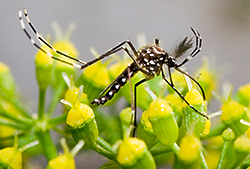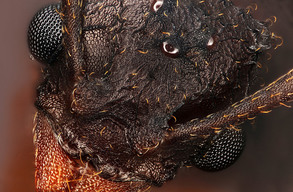|
Congratulations to Dave O'Brochta who was the Plenary Speaker at the Ninth Annual Arthropod Genomics Symposium, held last week in Manhattan Kansas.
Dr. Raymond St. Leger named as recipient of the Kirwan Faculty Research and Scholarship Prize6/25/2015
Congratulations to Dr. Raymond St. Leger who has been named as the recipient of the Kirwan Faculty Research and Scholarship Prize for 2015 by President Loh. The Kirwan Prize for 2015 recognizes Dr. St. Leger's accomplishments in the areas of biomedical research and agriculture and his work in genetic engineering techniques that develop new and more effective and environmentally safe technologies for controlling insect agricultural pests and vectors of important human diseases.
Office of Extended Studies is administering new online programs for the Department of Entomology Entomology graduate certificates and Master of Professional Studies starts at the University of Maryland fall 2015. Apply now at oes-entm.umd.edu
Baltimore fighting against beetle that targets its ash trees BALTIMORE (AP) — With the arrival of an invasive green Asian beetle in Baltimore, local governments and property owners are confronting tough — and potentially costly — choices about whether to try to save ash trees at risk of infestation or cut them down. The culprit is the emerald ash borer, which could attack any of the 5 million to 6 million ash trees across the Baltimore metropolitan area. With the infestation already underway, City Hall is seeking a contractor to inject as many as 820 curbside ash trees with insecticide.
“We are taking the initial steps to deal with what’s going to be a tragic situation,” said Erik Dihle, the city’s arborist. College of Computer, Mathematical, and Natural Sciences releases media relations report on the Bee |
Categories
All
Archives
June 2024
|
Department of Entomology
University of Maryland
4112 Plant Sciences Building
College Park, MD 20742-4454
USA
Telephone: 301.405.3911
Fax: 301.314.9290
University of Maryland
4112 Plant Sciences Building
College Park, MD 20742-4454
USA
Telephone: 301.405.3911
Fax: 301.314.9290



 RSS Feed
RSS Feed




